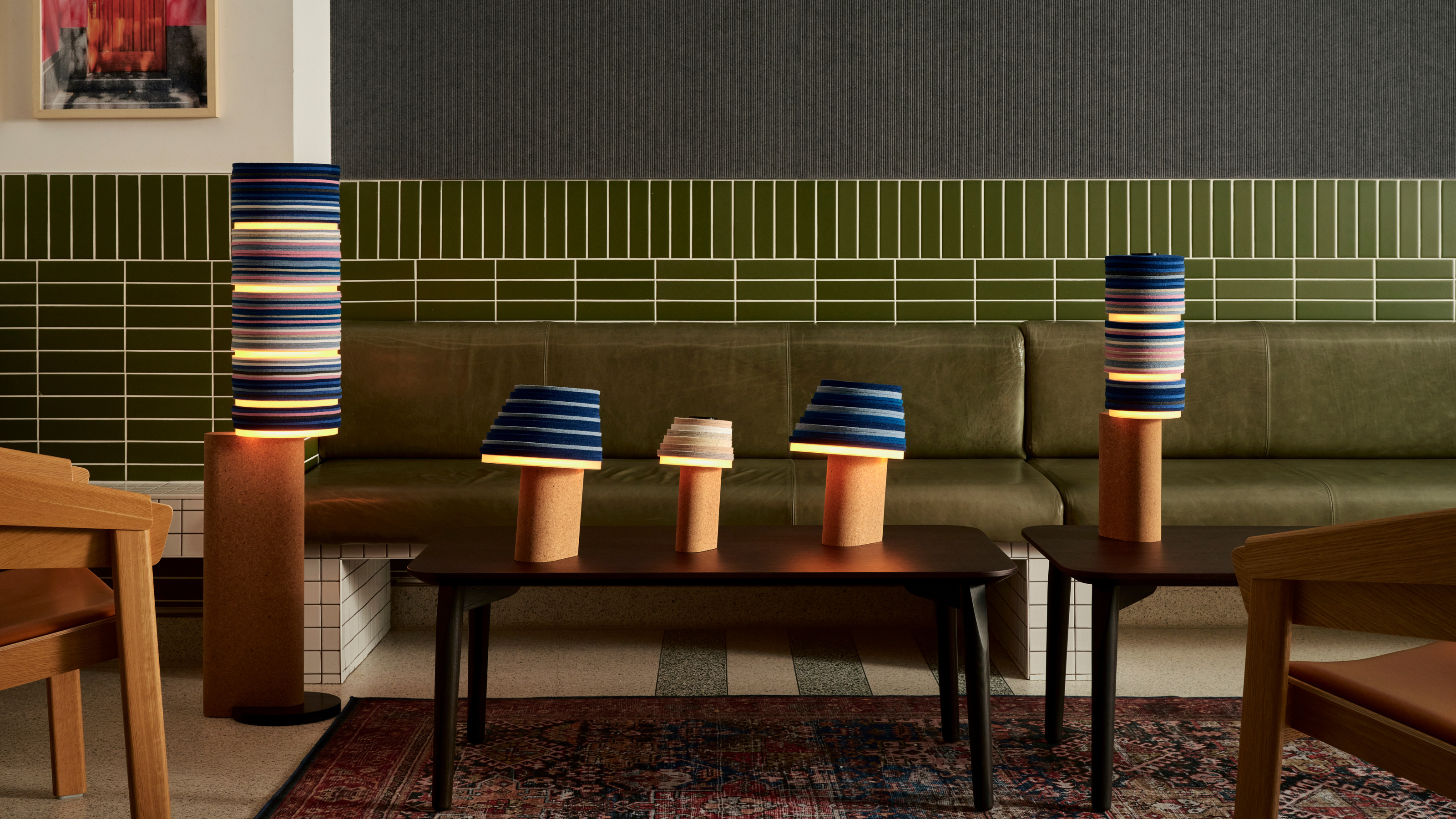
April is Earth Month — a time to acknowledge the beauty of the natural world, remind us of the environmental issues we face, and reflect on our positionality and efforts to nurture the well-being of the planet.
Of course, the choices we make for our own homes impact our shared home — the earth. Yes, we may want our homes to look good, but it's also important to recognize the tremendous efforts of brands that prioritize sustainable product design — creation that minimizes waste impact, promotes circularity, and encourages new ways of thinking about interior design.
So this Earth Month, we're putting the spotlight on brands that are making meaningful impacts in the sustainability space every single day. Crafting a sustainable home is multifaceted and ever-changing, and these seven brands are doing something novel, interesting, and frankly, cool, with materials and processes right now to push the conversation forward.
1. Homewares Made From 'Deadstock' Textiles by Juslin Maunula
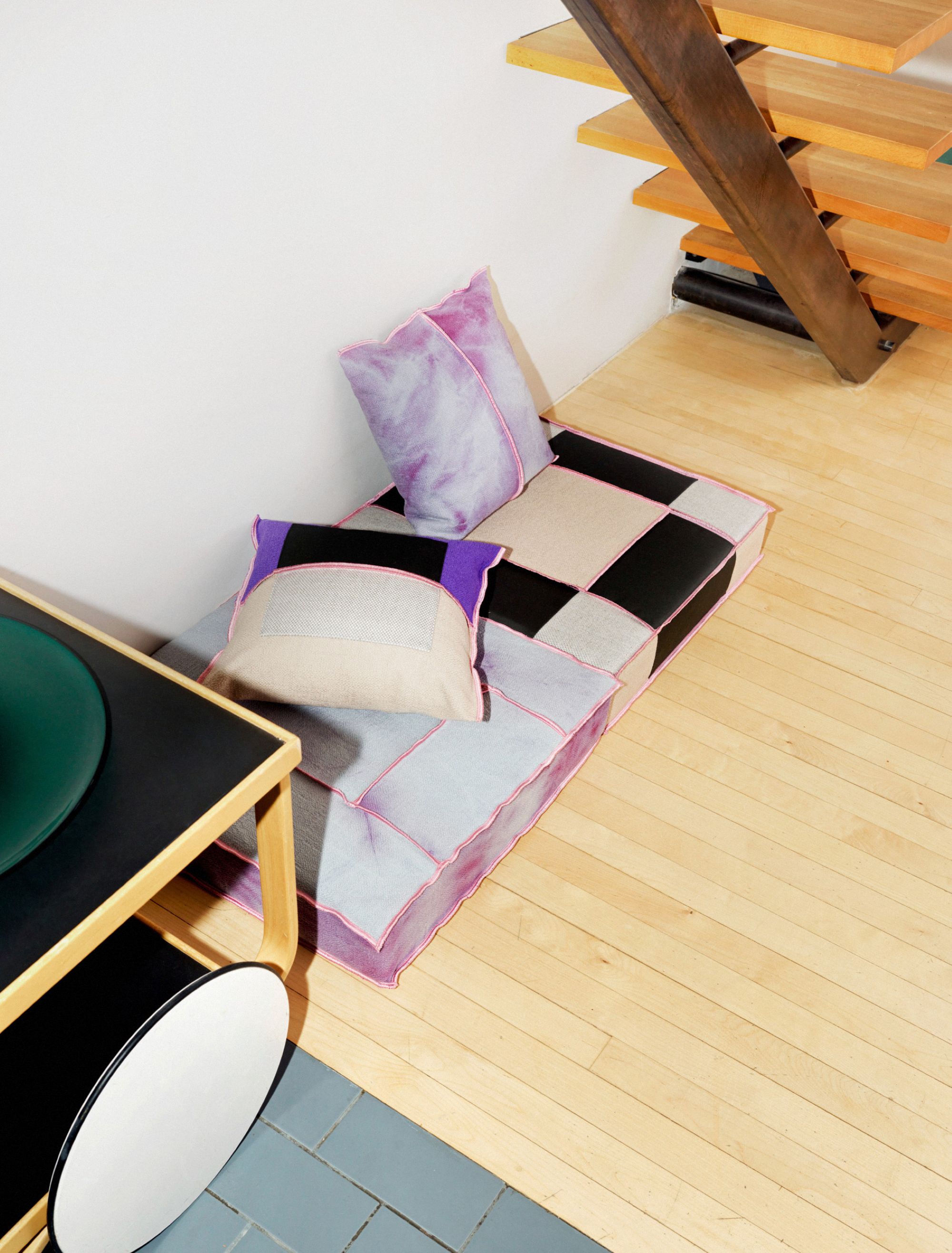
Juslin Maunula is a Helsinki-based design studio founded in 2015 by architect Lilli Maunula and fashion Designer Laura Juslin. Its mission? Tackle the textile waste problem that's defiling our world.
The duo has spent years working within the fashion industry, and they've seen first-hand how harmful the by-products of clothing creation can be. However, their brand strives to transform textile waste and fabric stock into desirable pieces that can add beauty to your home.
"Many brands struggle with what to do with unsold stock and deadstock fabrics — materials that are expensive to store and often discarded," Lilli and Laura tell Livingetc. "We’ve tackled this issue by transforming forgotten materials into desirable, purposeful products."
Lilli and Laura's brand experiments with proportion, color combinations, and other details to develop surprisingly beautiful products — from blankets, pillows, and poufs to bags and coats.
"Sustainability is a journey, and we’re committed to progress over perfection," they remark. That's just what makes their products so special.
2. 'Biodegradable Plastic' Furniture by Mater Design
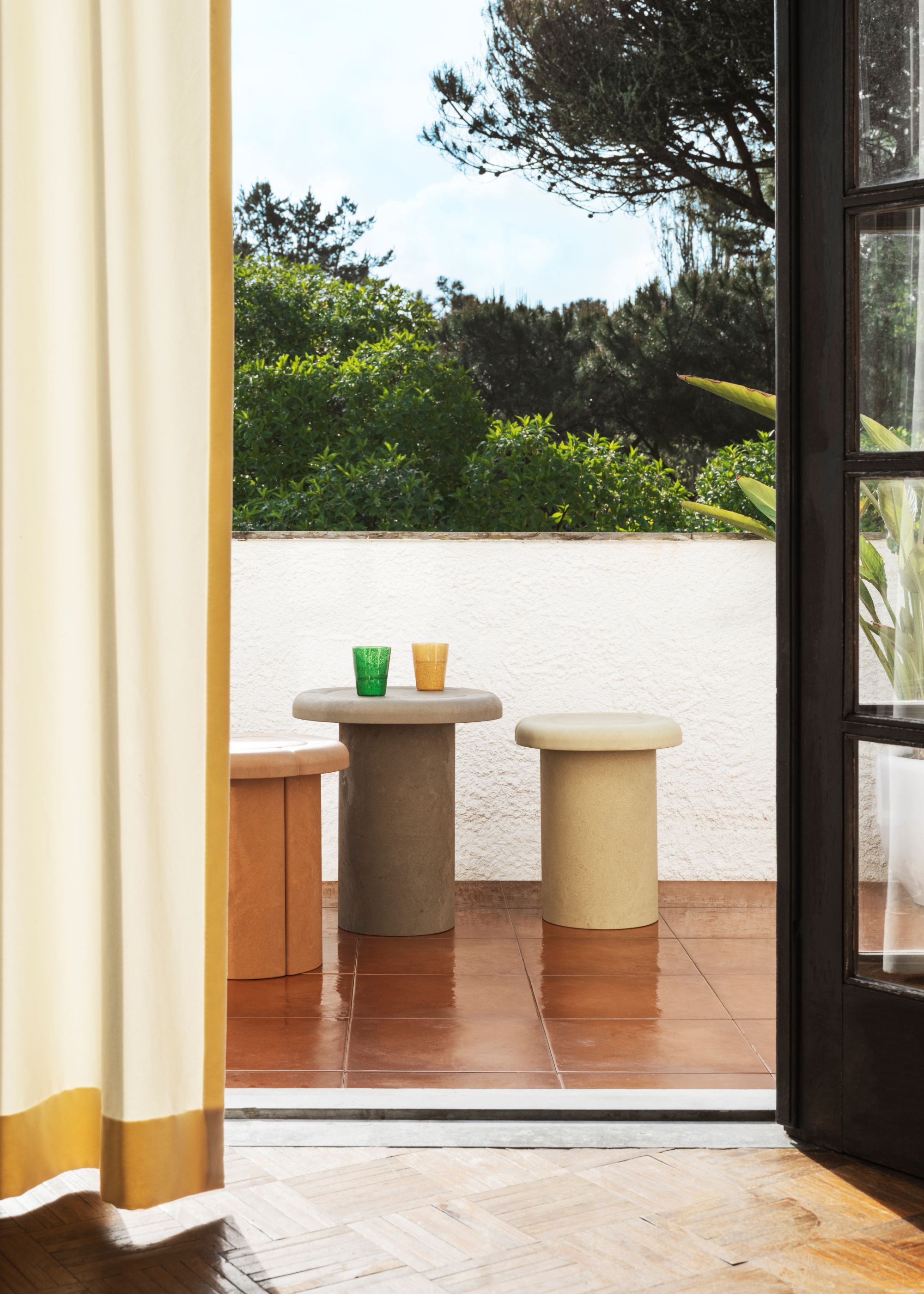
Sustainable furniture can be chic, and Mater Design is proof. The brand utilizes Matek, its patented material made of waste that can be formed into durable and stylish furniture. Mater keeps sustainability and circularity at its core while navigating the furniture industry.
"Our planet’s resources are not infinite, and we need to rethink antiquated ways of production now," Mater's CEO Ketil Årdal shares. "We use cutting-edge technology in production allowing us to transform waste materials into high-end design furniture."
Mater prides itself on its collaborations with established designers as well as new talents. Its Alder collection, which is composed of lounge and side tables, was created in collaboration with architect and designer Patricia Urquiola. "We are fortunate to collaborate with such a prominent figure in the design world, who, like us, is committed to searching for innovative and creative ways of making beautiful products — in a responsible way," Ketil remarks.
Each piece from the Alder collection is made from biodegradable plastic, Ketil shares, that can be decomposed by living organisms at the end of its life, just like wood or other natural materials — meaning, unlike other recycled plastic outdoor furniture, it won't end up, eventually, in landfill.
"Mater is not only a furniture design company — we are a green-tech company developing materials for a more sustainable future," Ketil muses. The brand is committed to helping our environment by finding stylish solutions to waste.
3. Electric Kiln Fired Basins by Laufen
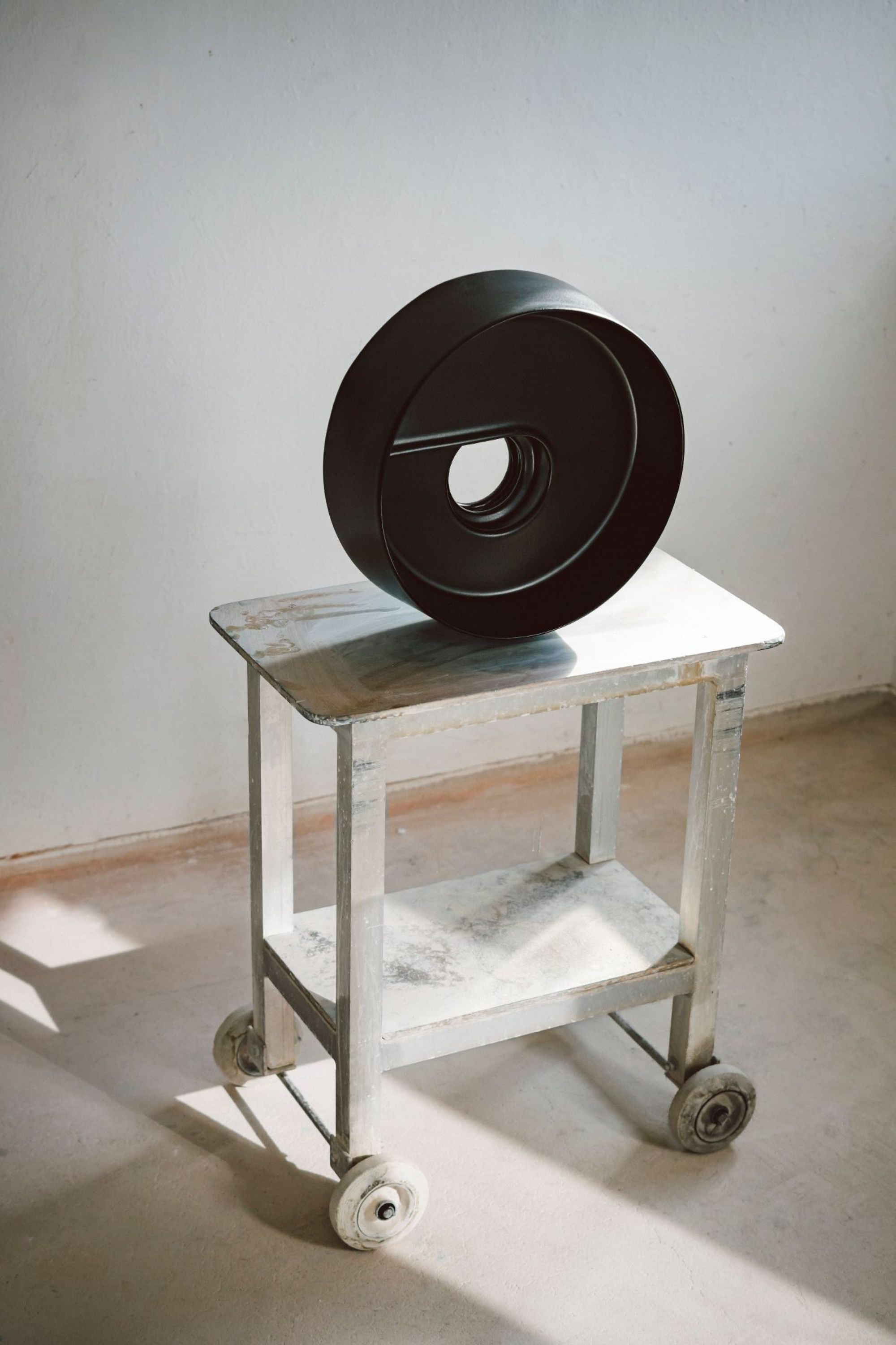
Electric alternatives have become a popular innovation in the sustainability space to combat a world that relies so heavily on fossil fuels.
In 2023, Swiss sanitaryware brand LAUFEN developed the world's first electric kiln — a highly efficient and decarbonized chamber that produces the same results as a traditional kiln, just without the utilization of fossil fuels. Recently, LAUFEN collaborated with Swiss designer Yves Behar to develop VOLTA — a revolutionary washbasin that debuted at this past Milan Design Week.
LAUFEN's brand marketing manager Emma Mottram tells us that the brand's commitment to sustainability goes beyond its manufacturing innovation, but considers water-saving solutions and promotes the use of recycled materials, as well.
"Every element is designed to minimize environmental impact without compromising aesthetics or performance," Emma shares. "Sustainability isn’t just about innovation — it’s about making responsible choices that will define the future of bathroom design.”
For Emma, and the rest of the LAUFEN team, sustainable product design is essential. It's at the core of the brand's ethos, and it's evident in everything LAUFEN produces.
4. Mycelium Biomaterial by MycoWorks
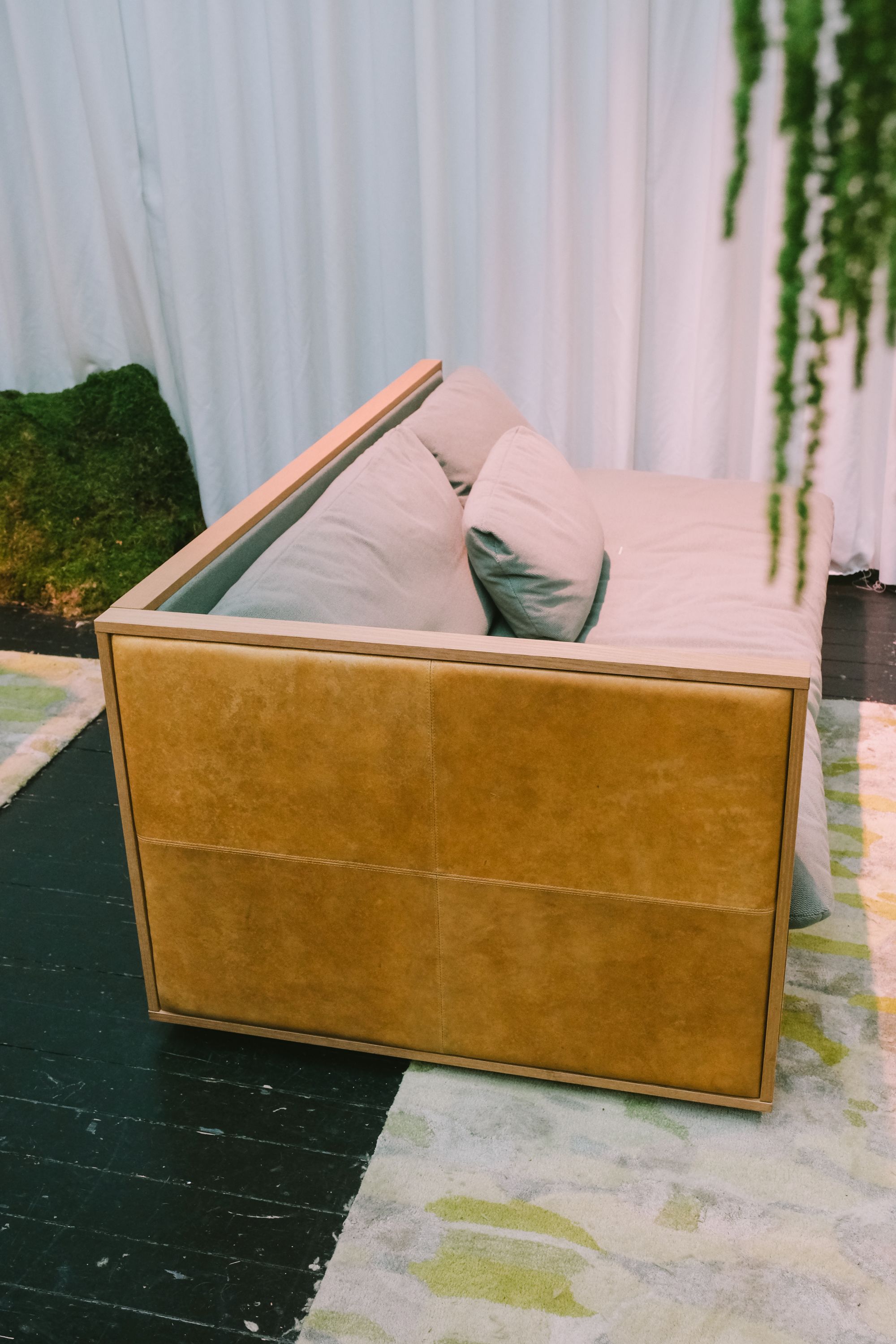
I bet you didn't know that fungus could transform into stunning home decor, did you? Well, with Reishi, it sure can. It's a material that might look like animal leather, but it's actually made from mycelium — the root system of mushrooms.
This 'grown' bio-material was created by innovative biotech firm MycoWorks, and it's composed of the company's patented Fine Mycelium — a recycled sawdust, bran, mycelium spawn, and filtered water — and combined with a textile such as cotton or silk. Together, Reishi is formed.
"MycoWorks’ Reishi is redefining luxury materials by delivering exceptional appeal, strength, and durability — opening new creative frontiers and inspiring a shift in how materials are conceived," representatives of the MycoWorks team share.
Reishi's strength makes it ideal for home furnishings and decorations like the Kobold Sofa — a design developed by the MycoWorks team and French furniture brand Ligne Roset.
The MycoWorks team emphasizes that Reishi is so much more than just a sustainable material. "It’s a new design paradigm," they say, "inviting nature in the creative process to unlock aesthetic and performance possibilities across fashion, interiors, and beyond."
5. Recyclable and Repairable Cork Lighting by Stackabl
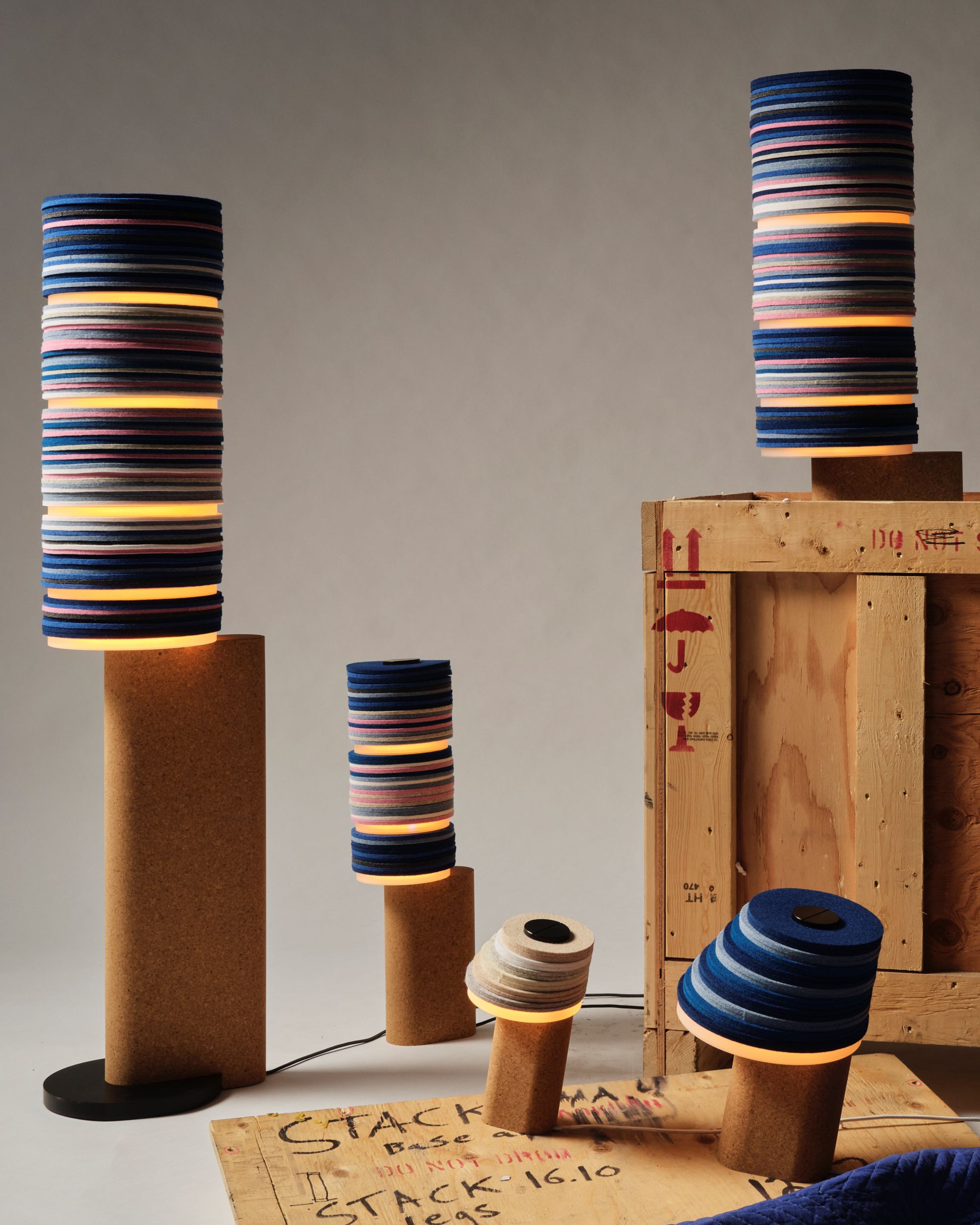
As a part of Toronto-based design studio STACKLAB, Stackabl began as a tech company that used scrap material like wool felt to create custom furniture and lighting. And after just a few years, the company has grown its network, expanded its material usage, and enhanced its sustainable product design — all with circularity in mind.
"At Stackabl, we’re currently focused on reducing waste, increasing manufacturing efficiency, and extending product lifespan. But that’s just the tip of the iceberg," Jeff Forrest, Stackabl's founder, tells us. "We're committed to expanding our awareness of the world and continually adding meaningful complexity to our work — so long as it remains viable to do so."
The brand recently launched 'Tilt and Shift', a new collection of lamps cleverly made from cork — a natural and infinitely recyclable cradle to cradle material. Stackabl collaborated with American architect and designer David Rockwell to create the cork furniture collection, which debuted at Casa Cork by David Rockwell at Milan Design Week. Not only are these cork lamps sustainable by nature, but they're remarkable in design and visually alluring in shape and color.
Jeff remarks that Stackabl products like the Tilt and Shift lamps are designed to evolve, "they’re easy to assemble, disassemble, adapt, and repair — ensuring they can extend their usefulness or re-enter the cycle as valuable material," he says.
For Stackabl, sustainability isn't just about making an eco-friendly product. "We treat it as an ongoing conversation," Jeff says, "engaging our community to rethink how products are conceived, made, moved, and ultimately valued."
6. 'Olive Pit' Wall Paint by Mylands
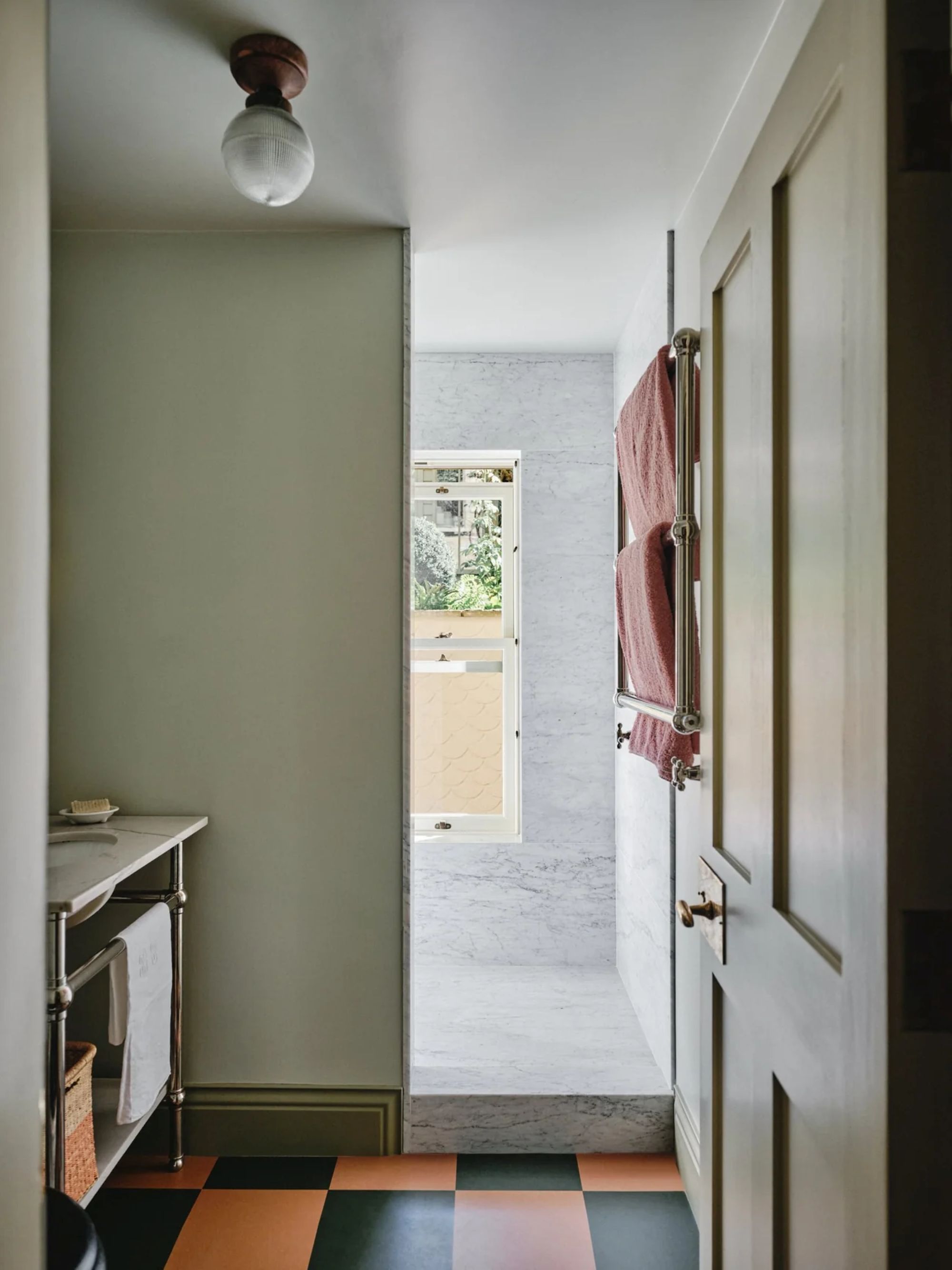
You might not realize it, but paint can have harmful environmental effects. High VOC content, or the level of volatile organic compounds in paint, might benefit the performance of paint, but they can lead to respiratory and air quality issues.
That's why London-based paint brand Mylands is committed to creating environmentally friendly paint with a low VOC content. According to the brand, they've been working to reducing chemical and microplastic inclusion in its products for over a decade by focusing on the use of raw materials in its paint.
The brand's latest creation is Olive Stone Emulsion paint, a plant-based paint that is made from a by-product of the olive oil industry — olive stones. The eco paint comes in a variety of different colors, it's wipeable, and highly durable.
Mylands's recognition of the environmental impacts of paint, as well as its commitment to using eco-friendly materials prove the brand's determination to combat environmental issues in the design industry.
7. Recycled Furniture by Miniforms
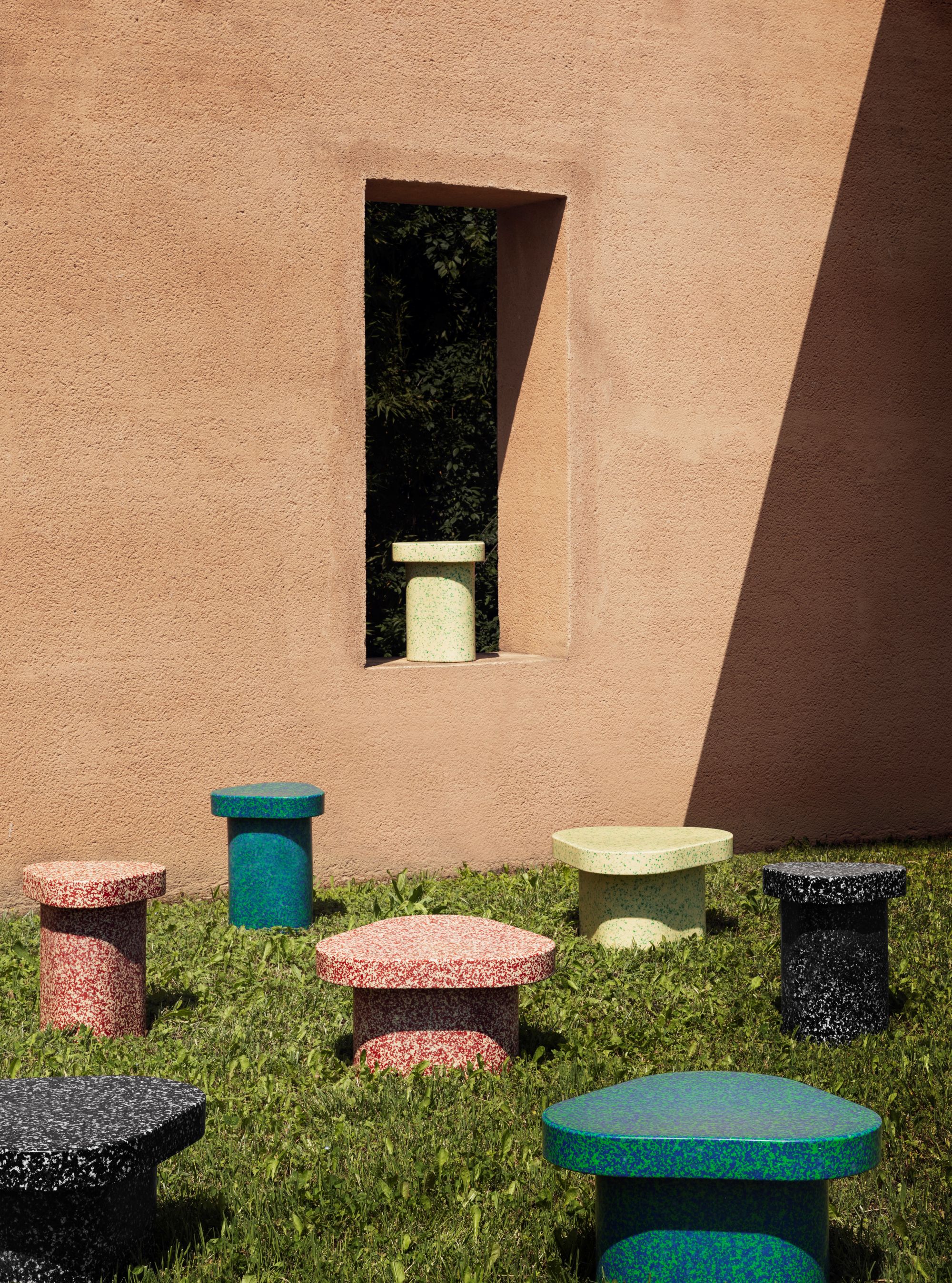
As a collaboration between Italian furniture manufacturer Miniforms and designer Paolo Cappello, Superpop is a collection of table-like surfaces made from recycled plastics. These products are environmentally friendly, and with their bright colors and playful designs, they're fun, too.
Each piece of this collection is made from polyethylene, a chemical compound used to make plastic, that has been recycled. The waste materials to make the Superpop products are sorted by type and then melted down at low temperatures to ultimately create their current form as tables, stools, or nightstands.
The process behind this sustainable product design encourages minimal environmental impact and promotes a circular approach to the use of plastics — since the plastics are melted at a low temperature, they can be used again and again.
Superpop products are versatile and highly durable — they can furnish your living room or decorate your outdoor living space. Plus, you'll feel good knowing these products are made from recycled materials.
But incorporating sustainable product design into your home is just the beginning. It's not just what you fill it with, but how you build it that can make a lasting impact, so it's worth reading up on topics like sustainable wall finishes, flooring types, and building practices, too.







